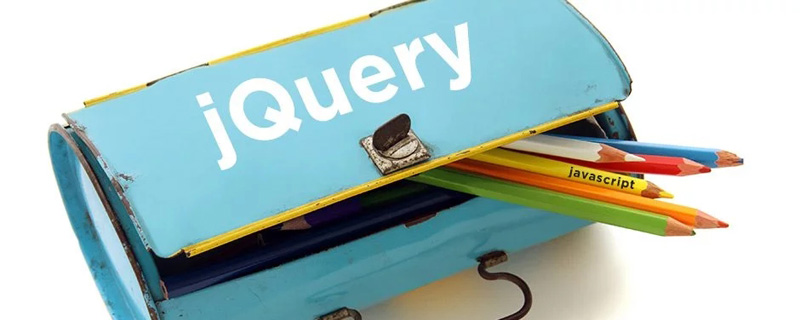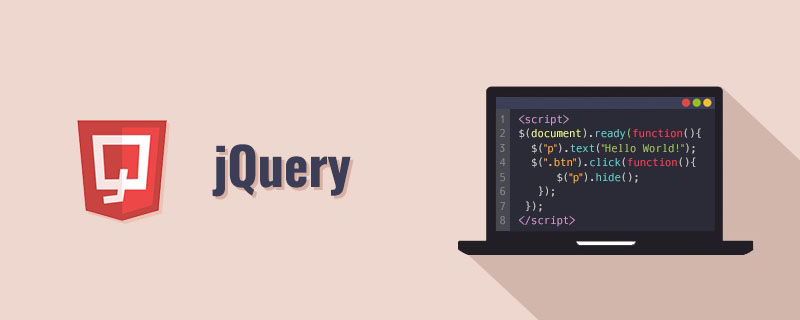The example in this article describes the usage of jquery plug-in bxslider. Share it with everyone for your reference. The specific usage is as follows:
First call the corresponding js file:
<script type="text/javascript" src="js/jquery.js"></script> <script type="text/javascript" src="js/jquery.bxslider.js"></script>
jQuery code part:
$(function(){
$('#marquee').bxSlider({
mode:'vertical', //默认的是水平
displaySlideQty:1,//显示li的个数
moveSlideQty: 1,//移动li的个数
captions: true,//自动控制
auto: true,
controls: false//隐藏左右按钮
});
});
HTML structure is as follows:
<div style="width:450px; height:296px; float:left; overflow:hidden; margin-left:200px;"> <ul id="marquee"> <li> <img src="/static/imghwm/default1.png" data-src="img/1.jpg" class="lazy" alt="banner_美容" style="width:450px; height:296px;"> </li> <li> <img src="/static/imghwm/default1.png" data-src="img/2.jpg" class="lazy" alt="banner_美容" style="width:450px; height:296px;"> </li> </ul> </div>
CSS defines left and right button styles:
.bx-prev{
width:12px; height:26px;
background:#f00;text-indent: -999999px;z-index: 999;
position: absolute; float:left; left:455px; top:110px;
}
.bx-next{
width:12px; height:26px;
background:#f00; text-indent: -999999px;
z-index: 999;
position: absolute; top:110px;left:-15px;
}
Parameter description:
bxSlider detailed configuration parameters:
bxSlider has many configuration parameters, allowing you to use parameters to create a variety of slider effects:
mode: 'horizontal', // 'horizontal', 'vertical', 'fade' defines the direction of slider scrolling. There are three values to choose from
infiniteLoop: true, // true, false - display first slide after last infinite loop
hideControlOnEnd: false, // true, false - if true, will hide 'next' control on last slide and 'prev' control on first If set to true, will hide "next" on the last slide and on the front slide Film therefore "prev"
controls: true, // true, false - previous and next controls whether to display the "previous" and "next" buttons
speed: 500, // integer - in ms, duration of time slide transitions will occupy Speed, unit is milliseconds
easing: 'swing', // used with jquery.easing.1.3.js - see http://gsgd.co.uk/sandbox/jquery/easing/ for available options
pager: true, // true / false - display a pager
pagerSelector: null, // jQuery selector - element to contain the pager. ex: '#pager'
pagerType: 'full', // 'full', 'short' - if 'full' pager displays 1,2,3... if 'short' pager displays 1 / 4 If full is set, 1, 2, 3 will be displayed ..., if short is set, 1/4 will be displayed.
pagerLocation: 'bottom', // 'bottom', 'top' - location of pager The location of the page number
pagerShortSeparator: '/', // string - ex: 'of' pager would display 1 of 4 page separator
pagerActiveClass: 'pager-active', // string - classname attached to the active pager link className of the current page number
nextText: 'next', // string - text displayed for 'next' control The text of the next page
nextImage: '', // string - filepath of image used for 'next' control. ex: 'images/next.jpg' You can set the next page to an image
nextSelector: null, // jQuery selector - element to contain the next control. ex: '#next'
prevText: 'prev', // string - text displayed for 'previous' control The text of the previous page
prevImage: '', // string - filepath of image used for 'previous' control. ex: 'images/prev.jpg' Picture on the previous page
prevSelector: null, // jQuery selector - element to contain the previous control. ex: '#next'
captions: false, // true, false - display image captions (reads the image 'title' tag) Whether to display the title of the image and read the content of the title attribute of the image.
captionsSelector: null, // jQuery selector - element to contain the captions. ex: '#captions'
auto: false, // true, false - make slideshow change automatically Slideshow automatically scrolls
autoDirection: 'next', // 'next', 'prev' - direction in which auto show will traverse the order of automatic scrolling
autoControls: false, // true, false - show 'start' and 'stop' controls for auto show automatic scrolling control keys
autoControlsSelector: null, // jQuery selector - element to contain the auto controls. ex: '#auto-controls'
autoStart: true, // true, false - if false show will wait for 'start' control to activate
autoHover: false, // true, false - if true show will pause on mouseover Setting mouseover will cause automatic scrolling to pause
autoDelay: 0, // integer - in ms, the amount of time before starting the auto show
pause: 3000, // integer - in ms, the duration between each slide transition transition time
startText: 'start', // string - text displayed for 'start' control start button text
startImage: '', // string - filepath of image used for 'start' control. ex: 'images/start.jpg' Image of the start button
stopText: 'stop', // string - text displayed for 'stop' control The text of the stop button
stopImage: '', // string - filepath of image used for 'stop' control. ex: 'images/stop.jpg' Stop button image
ticker: false, // true, false - continuous motion ticker mode (think news ticker)
// note: autoControls and autoControlsSelector apply to ticker!
tickerSpeed: 5000, // integer - has an inverse effect on speed. therefore, a value of 10000 will
// scroll very slowly while a value of 50 will scroll very quickly.
tickerDirection: 'next', // 'next', 'prev' - direction in which ticker show will traverse
tickerHover: false, // true, false - if true ticker will pause on mouseover
wrapperClass: 'bx-wrapper', // string - classname attached to the slider wraper
startingSlide: 0, // integer - show will start on specified slide. note: slides are zero based!
displaySlideQty: 1, // integer - number of slides to display at once
moveSlideQty: 1, // integer - number of slides to move at once
randomStart: false, // true, false - if true show will start on a random slide
I hope this article will be helpful to everyone’s jQuery programming.
 jquery实现多少秒后隐藏图片Apr 20, 2022 pm 05:33 PM
jquery实现多少秒后隐藏图片Apr 20, 2022 pm 05:33 PM实现方法:1、用“$("img").delay(毫秒数).fadeOut()”语句,delay()设置延迟秒数;2、用“setTimeout(function(){ $("img").hide(); },毫秒值);”语句,通过定时器来延迟。
 jquery怎么修改min-height样式Apr 20, 2022 pm 12:19 PM
jquery怎么修改min-height样式Apr 20, 2022 pm 12:19 PM修改方法:1、用css()设置新样式,语法“$(元素).css("min-height","新值")”;2、用attr(),通过设置style属性来添加新样式,语法“$(元素).attr("style","min-height:新值")”。
 axios与jquery的区别是什么Apr 20, 2022 pm 06:18 PM
axios与jquery的区别是什么Apr 20, 2022 pm 06:18 PM区别:1、axios是一个异步请求框架,用于封装底层的XMLHttpRequest,而jquery是一个JavaScript库,只是顺便封装了dom操作;2、axios是基于承诺对象的,可以用承诺对象中的方法,而jquery不基于承诺对象。
 jquery怎么在body中增加元素Apr 22, 2022 am 11:13 AM
jquery怎么在body中增加元素Apr 22, 2022 am 11:13 AM增加元素的方法:1、用append(),语法“$("body").append(新元素)”,可向body内部的末尾处增加元素;2、用prepend(),语法“$("body").prepend(新元素)”,可向body内部的开始处增加元素。
 jquery中apply()方法怎么用Apr 24, 2022 pm 05:35 PM
jquery中apply()方法怎么用Apr 24, 2022 pm 05:35 PM在jquery中,apply()方法用于改变this指向,使用另一个对象替换当前对象,是应用某一对象的一个方法,语法为“apply(thisobj,[argarray])”;参数argarray表示的是以数组的形式进行传递。
 jquery怎么删除div内所有子元素Apr 21, 2022 pm 07:08 PM
jquery怎么删除div内所有子元素Apr 21, 2022 pm 07:08 PM删除方法:1、用empty(),语法“$("div").empty();”,可删除所有子节点和内容;2、用children()和remove(),语法“$("div").children().remove();”,只删除子元素,不删除内容。
 jquery on()有几个参数Apr 21, 2022 am 11:29 AM
jquery on()有几个参数Apr 21, 2022 am 11:29 AMon()方法有4个参数:1、第一个参数不可省略,规定要从被选元素添加的一个或多个事件或命名空间;2、第二个参数可省略,规定元素的事件处理程序;3、第三个参数可省略,规定传递到函数的额外数据;4、第四个参数可省略,规定当事件发生时运行的函数。
 jquery怎么去掉只读属性Apr 20, 2022 pm 07:55 PM
jquery怎么去掉只读属性Apr 20, 2022 pm 07:55 PM去掉方法:1、用“$(selector).removeAttr("readonly")”语句删除readonly属性;2、用“$(selector).attr("readonly",false)”将readonly属性的值设置为false。


Hot AI Tools

Undresser.AI Undress
AI-powered app for creating realistic nude photos

AI Clothes Remover
Online AI tool for removing clothes from photos.

Undress AI Tool
Undress images for free

Clothoff.io
AI clothes remover

AI Hentai Generator
Generate AI Hentai for free.

Hot Article

Hot Tools

SublimeText3 Mac version
God-level code editing software (SublimeText3)

MantisBT
Mantis is an easy-to-deploy web-based defect tracking tool designed to aid in product defect tracking. It requires PHP, MySQL and a web server. Check out our demo and hosting services.

MinGW - Minimalist GNU for Windows
This project is in the process of being migrated to osdn.net/projects/mingw, you can continue to follow us there. MinGW: A native Windows port of the GNU Compiler Collection (GCC), freely distributable import libraries and header files for building native Windows applications; includes extensions to the MSVC runtime to support C99 functionality. All MinGW software can run on 64-bit Windows platforms.

WebStorm Mac version
Useful JavaScript development tools

Safe Exam Browser
Safe Exam Browser is a secure browser environment for taking online exams securely. This software turns any computer into a secure workstation. It controls access to any utility and prevents students from using unauthorized resources.






